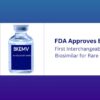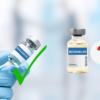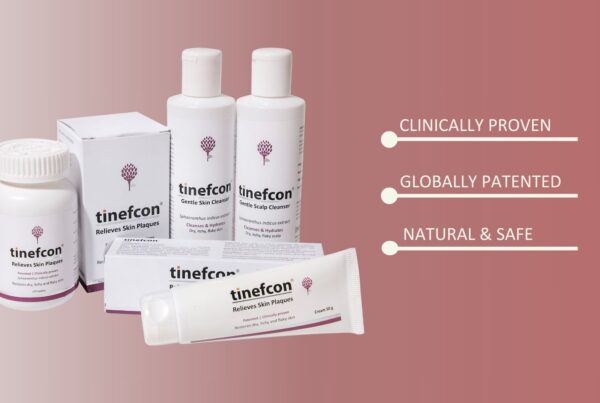The US Food and Drug Administration (FDA) has approved Wezlana (ustekinumab-auub) as a biosimilar and interchangeable to ustekinumab (Stelara) for the treatment of multiple inflammatory diseases. The approval of Wezlana is based on a comprehensive review of scientific evidence, which demonstrated the agent was highly similar to ustekinumab, and there were no clinically meaningful differences between the products regarding safety, purity, and potency.
Wezlana’s approval marks a significant step forward in expanding treatment options for patients grappling with inflammatory diseases. Developed by Amgen, this biosimilar is set to empower healthcare providers and patients alike by offering increased accessibility to safe, effective, and high-quality medications at potentially lower costs.
Key Indications for Wezlana
Wezlana mirrors Stelara in terms of its approved indications. It is suitable for the following patient groups:
For Adult Patients:
- Suitable for patients with moderate to severe plaque psoriasis, especially those who require phototherapy or systemic therapy.
- Expand treatment options for individuals with active psoriatic arthritis.
- Offers hope to those with moderate to severe Crohn’s disease.
- A valuable addition to the treatment options for moderately to severely active ulcerative colitis.
For Pediatric Patients (6 years and older):
- Advancing care for eligible young patients with moderate to severe plaque psoriasis.
- Expanding pediatric care for active psoriatic arthritis.
“Biosimilar medications provide extra safe and effective treatment options that may improve access for individuals in need of inflammatory disease treatment,” stated Nikolay Nikolov, MD, who oversees the FDA’s Centre for Drug Evaluation and Research’s Office of Immunology and Inflammation. “The approval today may significantly affect how patients manage their conditions.”
Like its reference product, Stelara, Wezlana does carry the risk of infection as its most serious known side effect. Common adverse reactions encompass nasopharyngitis, upper respiratory tract infections, headaches, fatigue, nausea, vomiting, injection site redness, vulvovaginal candidiasis/mycotic infections, bronchitis, itching, urinary tract infections, sinusitis, abdominal discomfort, fever, diarrhea, and influenza.
One of the most exciting aspects of this approval is the designation of Wezlana as interchangeable with Stelara. This means Wezlana, a prescribed medicine, can be substituted for Stelara at the pharmacy level without the need for prior consultation with a healthcare provider, streamlining the treatment process and enhancing patient convenience.
Wezlana, as a biosimilar, promises to offer a cost-effective alternative to Stelara. Patients and healthcare providers can expect the same level of safety and effectiveness from biosimilars as from reference products. This approval underscores the FDA’s commitment to creating a competitive marketplace for biological products, benefiting patients and healthcare systems alike.
The FDA’s approval of Wezlana is the result of a comprehensive review of scientific evidence, confirming its high similarity to Stelara and the absence of clinically meaningful differences in terms of safety and efficacy. This rigorous assessment included extensive testing, comparative pharmacokinetic data, and clinical safety and effectiveness data.
With the FDA’s approval of Wezlana, patients have gained a new treatment option that is highly similar to the reference product, Stelara. This milestone promises to make a meaningful impact on patient’s lives by enhancing access to effective treatments for inflammatory diseases.
For more information and updates on Wezlana and its impact on patient care, stay tuned to the latest news in the healthcare sector.
References:
- https://www.fda.gov/news-events/press-announcements/fda-approves-interchangeable-biosimilar-multiple-inflammatory-diseases
- https://www.empr.com/home/news/generics-news/interchangeable-biosimilar-wezlana-gets-fda-approval/
- https://www.accessdata.fda.gov/drugsatfda_docs/label/2023/761285s000,761331s000lbl.pdf
- https://www.hcplive.com/view/fda-approves-interchangeable-biosimilar-to-ustekinumab
- https://www.centerforbiosimilars.com/view/fda-approves-first-stelara-biosimilar-wezlana
- https://www.fiercepharma.com/pharma/amgen-scores-fda-nod-its-biosimilar-version-johnson-johnsons-stelara
- https://www.medscape.com/viewarticle/997961
Written By
Aswini PriyaMedical Content Writer
Reviewed By
Dr. AnchalMedico Expert
Last Updated
08 Sep 2023 | 01:50 AM (IST)









